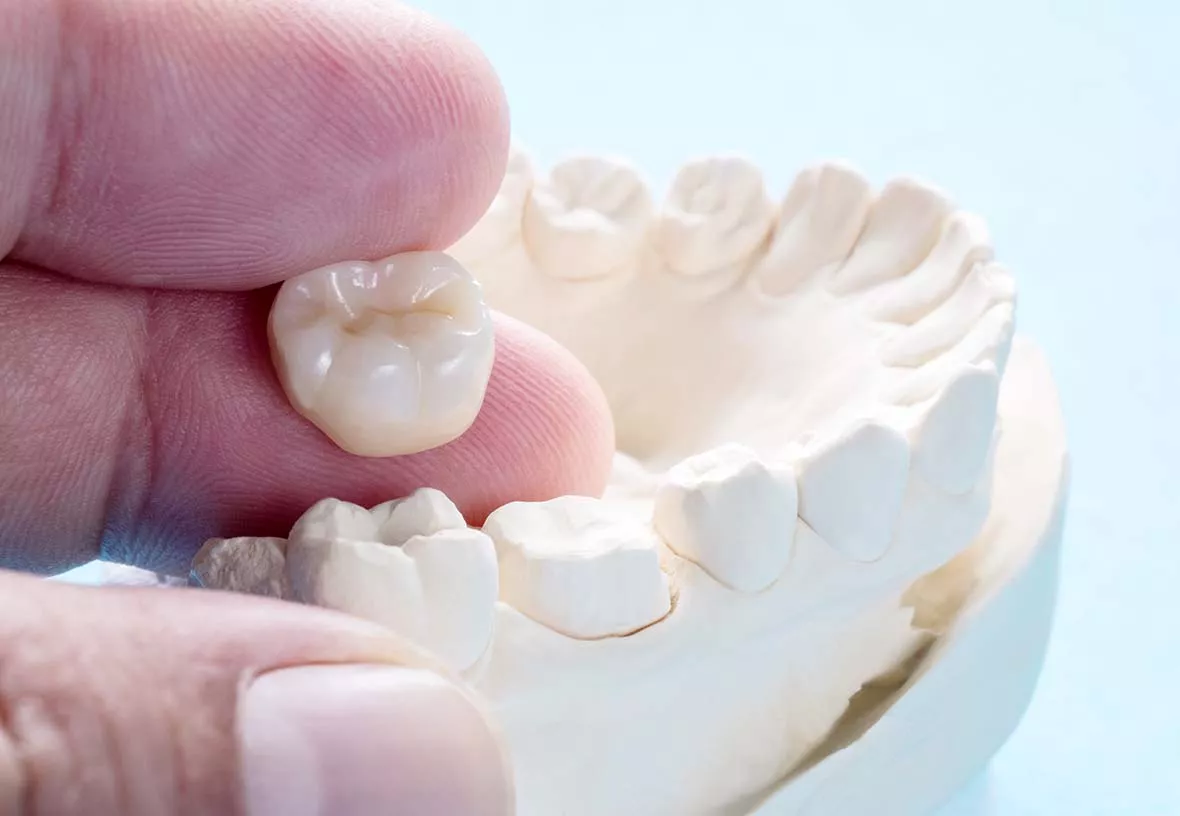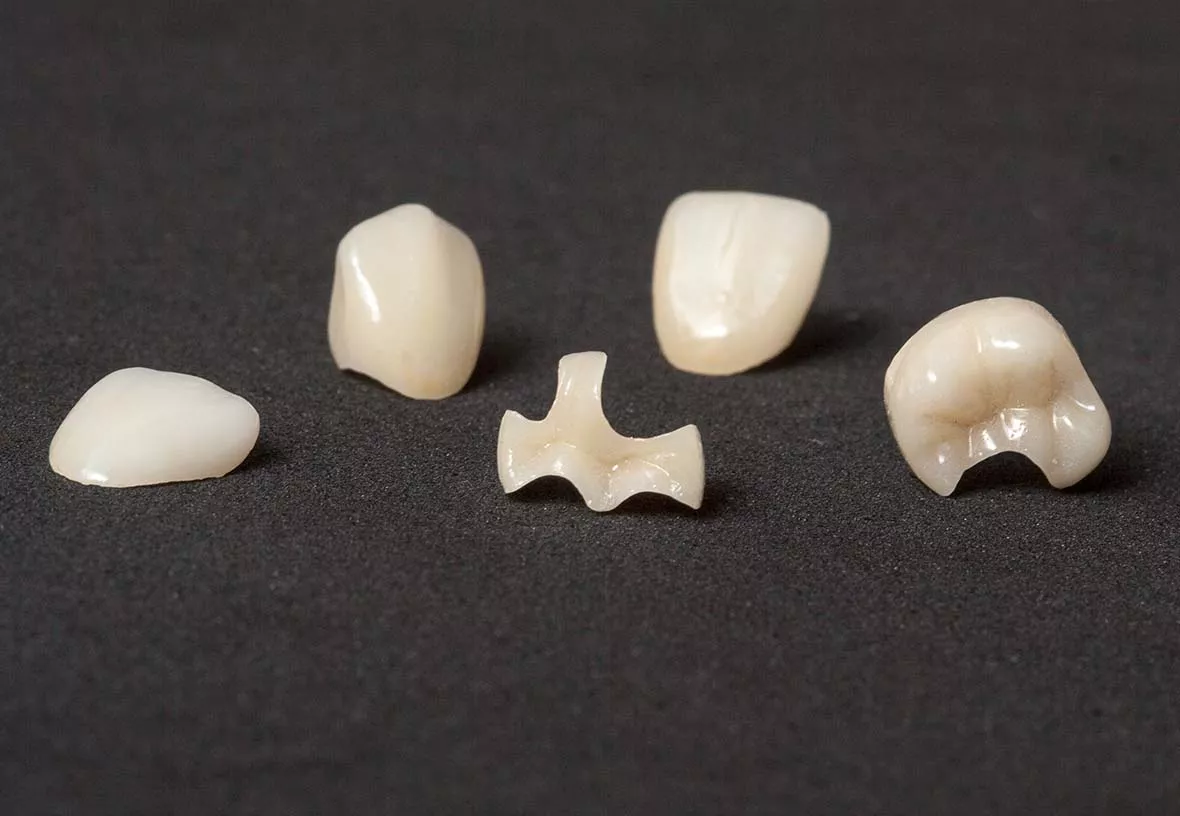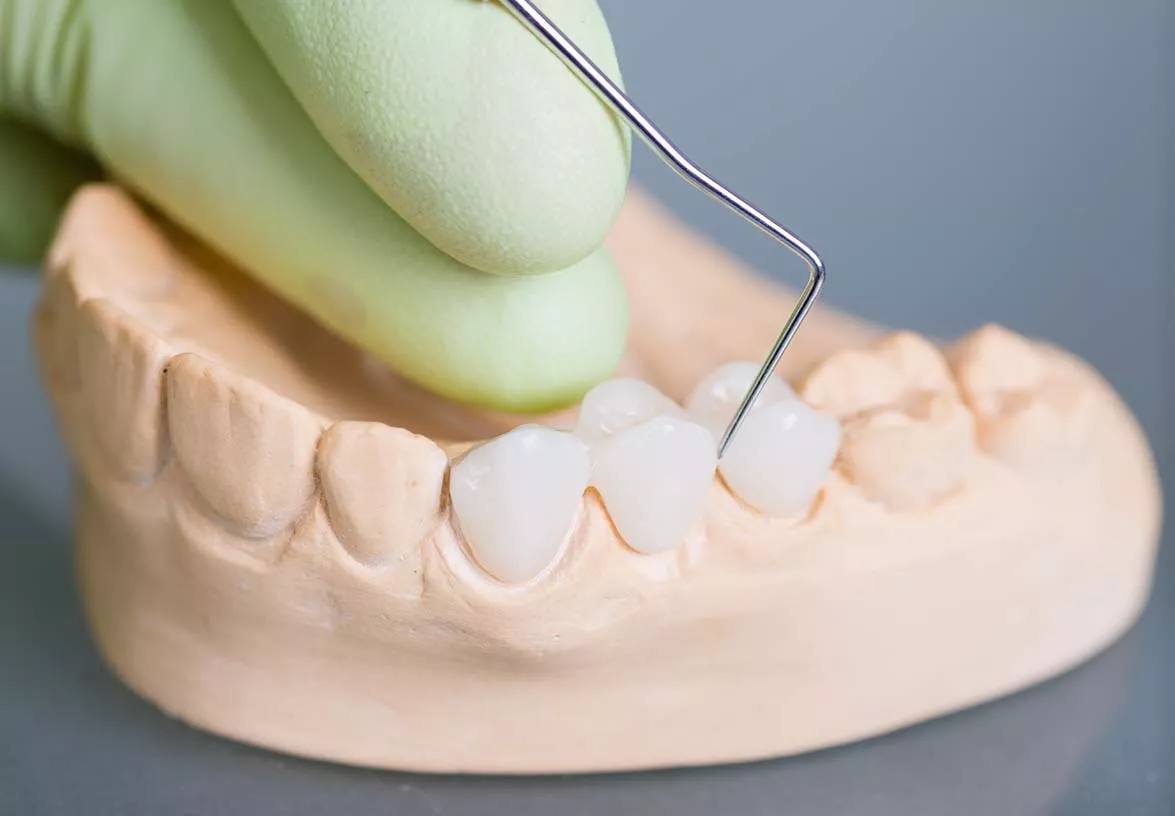Keep your Smile Healthy and Beautiful
Your teeth are very strong, but they can be vulnerable to damage or decay. Dental restorations repair the damage and restore your smile.
What are Dental Restorations?
Dental restorations are treatments that restore the function and appearance of damaged teeth or replace missing teeth. Creating and placing restorations is a combination of science and art. We use advanced dental composites and procedures to design and place restorations that are as durable and strong as your natural teeth. At the same time, we ensure that the restorations match the shape and shade of your natural teeth to restore the appearance of your smile. Learn more about the different types of restoration we offer.

Fillings
We use fillings to repair cavities and other damage to your teeth. Fillings protect the tooth from further damage and restore its function. Depending on your needs, we may recommend traditional metal fillings or composite fillings that can be shaded to match your other teeth.
Video: Filling
Crowns
Dental crowns, or caps, are used to restore a damaged tooth completely. Crowns are used when a tooth can’t be repaired with a filling or other treatment but doesn’t need to be removed. The crown fits over the injured tooth and is made from composite materials or ceramic that matches the shade of your other teeth.
Video: Crowns
Inlays & Onlays
Inlays and onlays are used to repair damage to your molars. They are similar to fillings, but they are used in situations where a filling may not completely restore the strength and integrity of the damaged tooth. Like crowns, inlays and onlays are produced in a dental laboratory and cemented into place in the molar being treated.
Video: Inlays / Onlays
Bridges
Bridges are used to replace one or more adjacent missing teeth. There are several types of bridges, but they all consist of artificial replacement teeth that are attached to the teeth on either side of the gap left by the missing teeth.
Video: BridgesFrequently Asked Questions
Are metal fillings bad for me?
Dentists have used metal fillings to repair teeth for over a century. They are safe and affordable, and they last a very long time. There are concerns that the mercury in metal fillings can “leak” or be released from the filling and cause health issues. However, studies show that the amount of mercury released is extremely small and doesn’t pose a health risk to patients. If you have concerns about metal fillings, talk to your dentist about other options, such as composite fillings or inlays.
Can I whiten my crown or bridge?
No. Teeth whitening treatments don’t work on the composite materials used in dental restorations. Talk to your dentist about your options for teeth whitening or changing the shade of your crown or bridge.
How long will my crown, bridge, or filling last?
Your restorations should last ten years or longer with proper care and diet. Eating hard or sticky foods or chewing your nails can damage your restorations.

